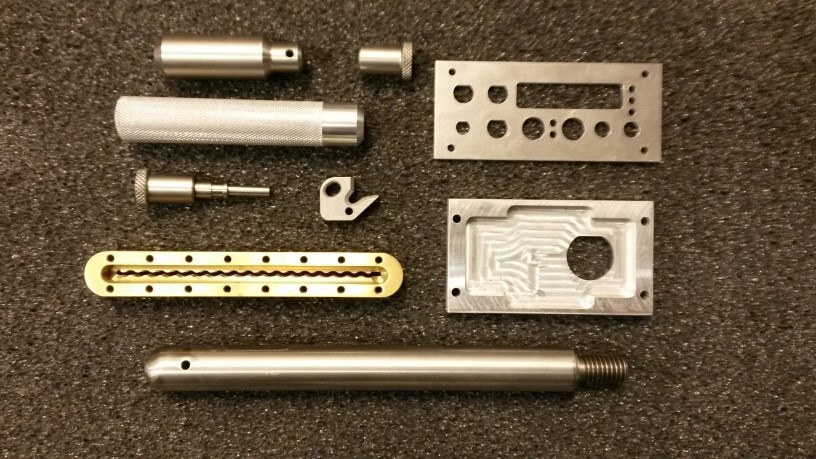CNC Vs Traditional Manufacturing Process
Traditional manufacturing methods like forging, casting and milling rely on human operators to control and direct machine tools. Compared to CNC, these processes can take longer to produce parts and have limited accuracy and precision.
1. Accuracy
CNC machining is a digitally-powered process that offers superior precision over traditional techniques. The machines rely on computer software to interpret intricate designs, reducing human errors and ensuring consistent results for every part. These features make it ideal for large-scale productions that require accuracy and consistency to meet quality standards.
Conventional machining methods use tools to manually craft and manipulate raw materials into the finished product. Among the most common approaches include casting, milling, and forging. While these techniques are effective in producing high-quality components, they may be prone to inconsistencies in quality and functionality. Moreover, they may also be a time-consuming process that requires frequent adjustments and complex setups.
While both processes provide value to manufacturers, it is important to understand their strengths and weaknesses. Traditional machining may offer flexibility for custom or unique projects, but the manual processes and potential for error can lead to higher waste and energy consumption. In comparison, CNC machining reduces material waste and enables more efficient use of energy. Its ability to produce parts precisely according to design specifications makes it a more sustainable choice.
2. Speed
While conventional machining can produce high-quality results, it lacks the efficiency and speed necessary for large production runs. In  contrast, CNC machining can deliver consistent parts at scale and meet tight deadlines.
contrast, CNC machining can deliver consistent parts at scale and meet tight deadlines.
The key difference is that CNC machines are controlled by software, rather than human operators. The software program dictates the movements of tools like drills, lathes and mills, which can then make incredibly precise parts at incredible speeds. This is a huge advantage for manufacturing industries where the smallest differences between products can have serious consequences.
Moreover, CNC machines are more accurate than traditional machine tools and can be used with a wide range of materials. This makes them ideal for a variety of applications in a wide range of industries, from aerospace and automotive to medical devices and consumer goods.
Nonetheless, there are some materials that can be difficult to work with in CNC machines. For instance, heat-sensitive materials may experience thermal deformation during the machining process and compromise accuracy. In addition, some materials may require specialized tools or equipment that can handle their specific machinability, limiting the available options for machining these types of components.
3. Cost
While CNC has a higher initial setup cost due to the machinery, programming, and tooling needed, it reduces costs over time through increased efficiency and reduced material waste. Combined with the speed of production and ability to ensure consistent quality, this makes it an excellent choice for large-scale manufacturing runs.
Traditional machining is manual, requiring human workers to be hands-on with every piece produced. Taking breaks between work contributes to longer lead times and slower overall productivity, which is less ideal for businesses that need to meet customer demand or respond to shifts in the market.
In addition to the slow pace, traditional machining processes limit design flexibility. Changing designs requires time-consuming and expensive retooling, which can be challenging for companies that require frequent changes in product offerings. This lack of flexibility also limits a business’s innovation capacity and inhibits its ability to tailor products to specific needs. In contrast, CNC machining is much more flexible in this regard, as machinists can simply load new software programs to change the production process. This reduces bottlenecks and improves operational intelligence. Additionally, the automated nature of CNC machining helps minimize energy consumption and lower operating expenses. As a result, it’s becoming increasingly popular in the industry.